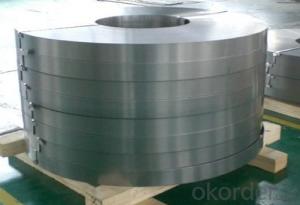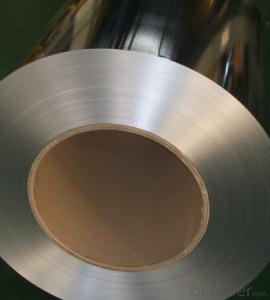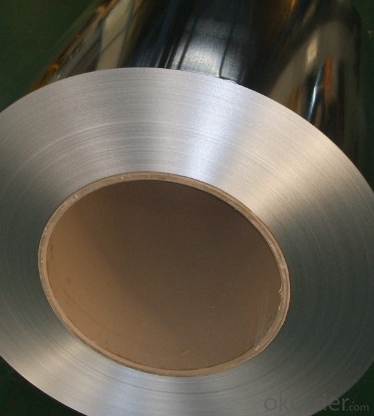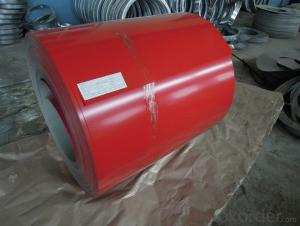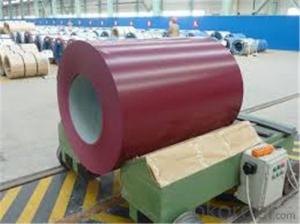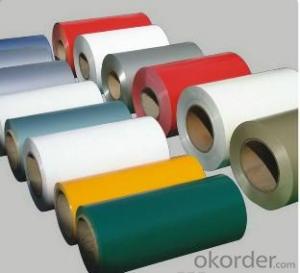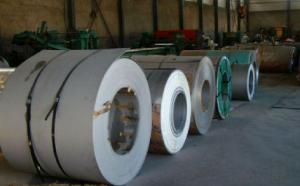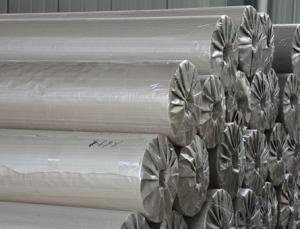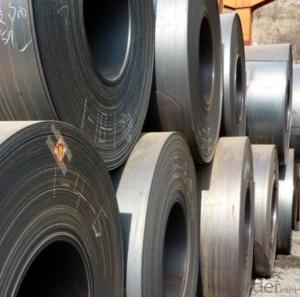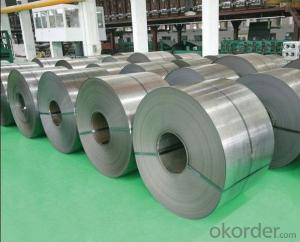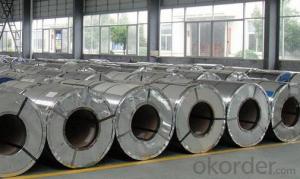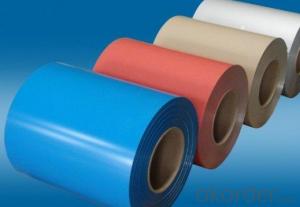Thickness: 0.15 - 2.0 mm
Technique: Hot Rolled
Application: Container Plate
Surface Treatment: Galvanized
Secondary Or Not: Non-secondary
Certification: CE
Special Pipe: Thick Wall Pipe
Alloy Or Not: Non-alloy
Section Shape: Other
Galvanized Steel Coil Hot Dipped FS Type A CNBM
- Loading Port:
- Guangzhou
- Payment Terms:
- TT OR LC
- Min Order Qty:
- 20 m.t.
- Supply Capability:
- 3000 m.t./month
OKorder Service Pledge
Quality Product, Order Online Tracking, Timely Delivery
OKorder Financial Service
Credit Rating, Credit Services, Credit Purchasing
You Might Also Like
1.Quick Details:
2.Packaging & Delivery
| Packaging Details: | standard package |
|---|---|
| Delivery Detail: | 1-4 week |
cold rolled galvanizing steel coil
galvanized iron steel coil
| Type of coating surface finish | Symbol | Remarks |
| Regular spangle | R | A coating having spangles as a result of unrestricted growth of zinc crystals normal solidification. |
| Minimized spangle | Z | A coating having the spangles obtained by restricting normal spangle formation to be a minimum. |
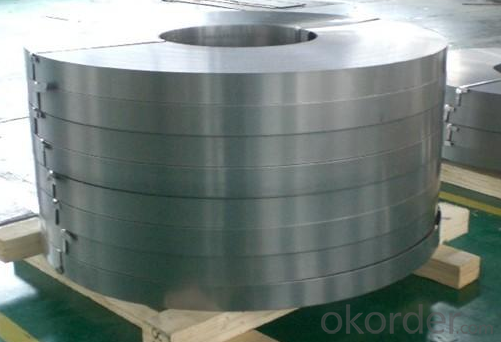
5.What is the application of Steel Coil?
There are two sides,one is out side: Workshop, agricultural warehouse, residential precast unit, corrugated roof, roller shutter door, rainwater drainage pipe, retailer booth;the other is inside: Door, doorcase, light steel roof structure, folding screen, elevator, stairway, vent gutter.
- Q: How can I judge the quality of steel?
- The quality of the alloy can be very well be judged by its appearance and lustrous surface. The more luster on the surface the more refine will the steel be. To judge its tenacity and endurance, the alloy can be subjected to a series of procedures involving stress and shock. There are many more scientific methods of measuring the quality of the alloy such as texture measurement technique etc are also employed. In layman’s term the quality can be measured by the hardness of surface, brightness and smoothness of the surface and absence of any depressions or troughs.
- Q: What are the factors driving the growth of the steel coil industry?
- There are several factors driving the growth of the steel coil industry. Firstly, the increasing demand for steel coils in various sectors such as automotive, construction, and manufacturing is a significant driver. Additionally, the expanding infrastructure projects and urbanization in emerging economies contribute to the growth of the industry. Moreover, technological advancements in steel manufacturing processes and the adoption of efficient production techniques also play a crucial role in driving the growth of the steel coil industry.
- Q: Can steel coils be transported by air?
- Yes, steel coils can be transported by air. Air freight companies have the capability to transport heavy and oversized cargo, including steel coils, using specialized aircraft and equipment. However, due to their weight and size, transporting steel coils by air can be more expensive compared to other modes of transportation such as sea or rail.
- Q: How are steel coils used in the production of metal panels?
- Metal panels require steel coils as an essential component in their production. These coils, typically made from high-quality steel, act as the raw material for manufacturing different types of metal panels. To initiate the production process, specialized machinery is used to unroll and flatten the steel coils. This process guarantees a consistent and uniform thickness throughout the sheet. Following this, the flattened steel is cut into the desired length and width, depending on the specific requirements of the metal panel being produced. After the steel has been cut, it undergoes further processing, including cleaning and coating. This step aims to eliminate any impurities and safeguard the steel against corrosion or damage. The coating also enhances the appearance of the metal panel and provides additional durability and longevity. Once the cleaning and coating process is complete, the steel sheets are shaped into the desired form using various techniques such as roll forming or stamping. This enables the creation of diverse metal panels, including roofing panels, wall panels, and decorative panels, among others. The selection of steel coils for metal panel production is based on their strength, durability, and versatility. Steel is renowned for its exceptional structural properties, making it the ideal material for constructing sturdy and long-lasting metal panels. Moreover, steel exhibits high resistance against environmental factors like extreme weather conditions, further enhancing the durability of the metal panels. In conclusion, steel coils play a critical role in the production of metal panels by serving as the raw material and undergoing various processes to ensure quality and durability. The utilization of steel coils enables the production of a wide range of metal panels suitable for various industries and applications.
- Q: How are steel coils cut and shaped for specific requirements?
- Steel coils are cut and shaped for specific requirements through a process called slitting and forming. Slitting involves unwinding the coil and passing it through a set of circular blades that cut it into narrower strips. These strips can then be further processed through different forming techniques such as roll forming, stamping, or bending to achieve the desired shape and dimensions. This allows manufacturers to customize steel coils according to specific requirements for various applications in industries like automotive, construction, and manufacturing.
- Q: Can steel coils be customized in terms of size and thickness?
- Yes, steel coils can be customized in terms of size and thickness. Steel manufacturers have the capability to produce coils in various sizes and thicknesses to meet the specific requirements of customers. This allows for flexibility in applications and ensures that the steel coils can be tailored to suit different industries and projects.
- Q: How are steel coils used in the manufacturing of steering columns?
- Steel coils are used in the manufacturing of steering columns as they provide the necessary strength and durability required for this crucial automobile component. The steel coils are formed into specific shapes and sizes, which are then used to create the structural framework of the steering column. This ensures that the steering column can withstand the forces and stresses encountered during vehicle operation, allowing for safe and reliable steering control.
- Q: So I was thinking about doing corset waist training and I wanted to know where I can get a real steel boned corset?
- Hi, okorder / There are 3 types of corsets: Fashion corsets, Authentic corsets and Waist training corsets. The fashion corsets are designed for light enclasping of body. They are made with plastics bones usually. The authentic corsets can reduce your waist size about 4 - 5 and the waist training corsets about 6. They both are made with steel spirals and flat bones. The waist training corsets are recommended for experienced wearers only. Look on info pages of the seller. The corsets reinforced with plastic bones are cheap with low durability.
- Q: Can steel coils be coated with light-reflective materials?
- Yes, steel coils can be coated with light-reflective materials.
- Q: How are steel coils protected from condensation?
- Steel coils are typically protected from condensation by applying a thin layer of oil or another corrosion-resistant coating to the surface. This acts as a barrier, preventing moisture from coming into direct contact with the steel and minimizing the risk of condensation forming. Additionally, the coils are often stored in a controlled environment with proper ventilation to minimize humidity levels and prevent condensation from occurring.
Send your message to us
Galvanized Steel Coil Hot Dipped FS Type A CNBM
- Loading Port:
- Guangzhou
- Payment Terms:
- TT OR LC
- Min Order Qty:
- 20 m.t.
- Supply Capability:
- 3000 m.t./month
OKorder Service Pledge
Quality Product, Order Online Tracking, Timely Delivery
OKorder Financial Service
Credit Rating, Credit Services, Credit Purchasing
Similar products
Hot products
Hot Searches
Related keywords
